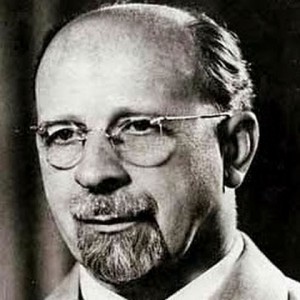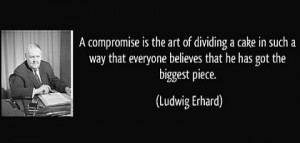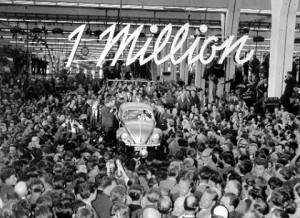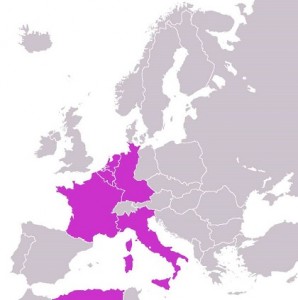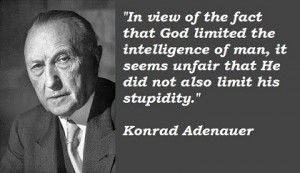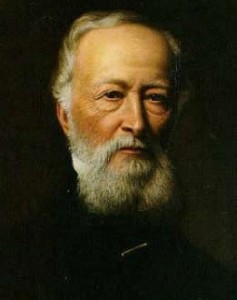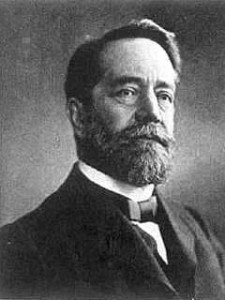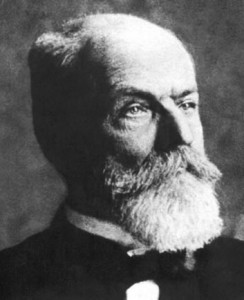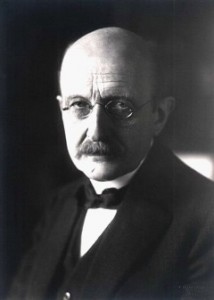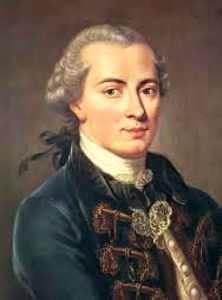Soviet dictator Stalin died in March 1953. In large portions of the East German population, particularly among workers suffering under the high production quotas set by the SED, Stalin's death gave rise to hopes for an improvement in living conditions and for an easing of political terror. In an attempt to stave off increasing unrest among the … [Read more...]
Ludwig Erhard and the Grand Coalition
Konrad Adenauer assumed the chancellorship of the newly founded FRG in 1949, at the age of seventy-three. From the beginning, his primary foreign policy goals had been the achievement of German reunification through a policy of strength, the building of strong relations with the United States, and reconciliation with France. Until the elections … [Read more...]
Social Market Economy in Germany
Germany's economic growth during the first decades after the war at times overshadowed its marked success at joining the international community. In 1945 the country's economy was shattered. A good part of what survived was later dismantled and carried off by the victorious Allies. Within Germany there was much argument about how to rebuild the … [Read more...]
Rearmament and the European Defense Community
The outbreak of the Korean War in 1950 convinced Western leaders of the growing threat of international communism. The United States began to encourage the Europeans--the FRG in particular--to contribute to their own defense. For Germany, five years after having lost the most devastating of all wars, this meant forming an army, a step unthinkable … [Read more...]
West Germany and the Community of Nations
At the end of World War II, Germany was a defeated nation occupied by foreign powers. It had lost its national sovereignty, and the world saw it as a pariah, guilty of crimes without parallel in history. In addition to rebuilding their shattered country in a physical sense, most leading German politicians saw their main goals in the coming decades … [Read more...]
April 26 in German History
April 26, 1774 Birth of Leopold Freiherr von Buch in Angermünde, Germany. Buch's travels and reports were instrumental in the development of the study of geography in the 19th century. He studied at the Freiberg School of Mining. For a short time he was the inspector of mines, but soon turned full time to his researches in geology. April 26, … [Read more...]
April 25 in German History
April 25, 1849 Birth of Felix Klein (1849-1925) in Düsseldorf, Germany. Klein was a German mathematician, known for his work in group theory, complex analysis, non-Euclidean geometry, and on the connections between geometry and group theory. His 1872 Erlangen Program, classifying geometries by their underlying symmetry groups, was a hugely … [Read more...]
April 24 in German History
April 24 Feast Day of St. Marianus von Regensburg Marianus (? - 1083) was born in Ireland. He left his home on a Pilgrimage to Rome but only got as far as Germany. He became a Benedictine monk in Bamberg. He then moved to Regensburg where he founded the Monastery of St. Peter and became the Abbot. April 24, 1662 Death of St. Markus Roy … [Read more...]
April 23 in German History
April 23, 1500 Birth of Johannes Stumpf in Bruchsal, Germany. Stumpf was one of the leading Swiss chroniclers of his age. His Gemeiner loblicher Eydgnoschafft Stetten, Landen und Völckeren chronikwirdiger Thaaten Beschreybung of 1547 to 1548 gives detailed information on that period in Switzerland. April 23, 1708 Birth of Friedrich von … [Read more...]
April 22 in German History
April 22, 1724 Birth of Immanuel Kant (1724-1804) in Königsberg, Germany (now in Russia). Kant would become one of the most influential philosophers of all times. His Critiques are the best known of his works, Kritik der reinen Vernunft, Kritik der Praktischen Vernunft. In ethics Kant is known for his categorical imperative. April 22, … [Read more...]
- « Previous Page
- 1
- …
- 81
- 82
- 83
- 84
- 85
- …
- 118
- Next Page »
